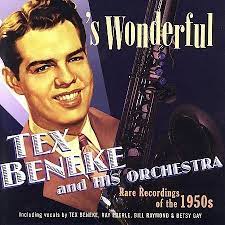
Daily Dose Of Jazz…
Tex Beneke was born Gordon Lee Beneke on February 12, 1914 in Fort Worth, Texas. He started playing saxophone when he was nine, going from soprano to alto and settling on the tenor saxophone. His first professional work was with bandleader Ben Young in 1935, but it was after a Gene Krupa recommendation when he joined the Glenn Miller Orchestra three years later that his career hit its stride.
Miller immediately made Beneke his primary tenor saxophone soloist and he played all but a few of the tenor solos on all of the records and personal appearances made by the Miller band until it disbanded in 1942. He appeared with Miller and his band in the films Sun Valley Serenade in 1941 and Orchestra Wives in 1942, and both film solos helped propel the singer/saxophonist to the top of the Metronome polls. He went on to perform with the 1941 Metronome All-Star Band led by Benny Goodman. In 1942, Glenn Miller’s orchestra won the first Gold Record ever awarded for Chattanooga Choo Choo.
With the orchestra disbanded due to Miller’s enlistment, Tex briefly joined Horace Heidt before joining the Navy himself, leading a Navy band in Oklahoma. He led two bands in the navy and kept in touch with Miller while they were both serving in the military. By 1945, he felt ready to lead his own orchestra. When Glenn went missing in 1944 he took over the band, shaping it as a ghost band per the desires of the Miller estate, however by 1950, he and the estate parted ways.
Post Miller, Beneke led his own groups but as swing faded from the mainstream so did opportunities. There was a small revival in the late Seventies but he was limited to small labels and competition from Miller alumni and other imitators. He would make the television circuit making appearances on The Tonight Show and Merv Griffin. 1990 saw him have a stroke which sidelined his saxophone playing but he continued to conduct and sing.
On May 30, 2000 saxophonist, vocalist and bandleader Tex Beneke, who received a star on the Hollywood Walk of Fame, transitioned from respiratory failure at a nursing home in Costa Mesa, California, aged 86. His saxophone is currently used by the Arizona Opry.
More Posts: bandleader,history,instrumental,jazz,music,saxophone,vocal
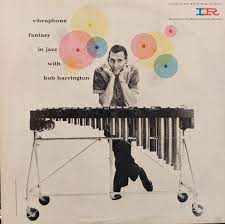
Daily Dose Of Jazz…
Bob Harrington was born Robert Maxon Harrington in Marshfield, Wisconsin on January 30, 1912. He played piano with Charlie Barnet in the early 1950s and worked with both Red Nichols and Bud Freeman during that decade as a drummer.
On vibraphone, he played with Georgie Auld, Buddy DeFranco, Vido Musso, Ben Webster, Ann Richards, and Harry Babasin’s Jazzpickers. He released one solo album, Vibraphone Fantasy in Jazz, on Imperial Records in 1957, which is now a collector’s item.
Vibraphonist Bob Harrington, who was adept on drums and piano, transitioned on August 20, 1983 in Kona, Hawaii.
More Posts: bandleader,drums,history,instrumental,jazz,music,piano,vibraphone
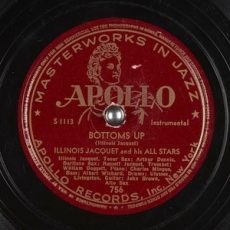
Daily Dose Of Jazz…
Ulysses Livingston was born on January 29, 1912 in Bristol, Tennessee and played in the band of the West Virginia State College. He began his professional career in music in the Horace Henderson band as a roadie, or, as Henderson called them, valet.
After his period with Henderson he played guitar in carnival bands on traveling road shows. By the middle of the 1930s he began to get jazz gigs with Lil Armstrong, Frankie Newton, Sammy Price, Coleman Hawkins, and Benny Carter.
Moving to New York City, Ulysses accompanied Ella Fitzgerald on tour and on record. He served briefly in the military during World War II, but returned to jazz playing on the West Coast in 1943. He played with Cee Pee Johnson in Hawaii four years later.
Alongside his guitar playing, Livingston also sang with the Spirits of Rhythm, and led a group called the Four Blazes. From the 1950s he did freelance work with West Coast jazz musicians and also became active as a record producer.
He would go on to record with the Varsity Seven, Jazz At The Philharmonic, Illinois Jacquet, Rex Stewart’s Big Eight, Pete Johnson and numerous others. Guitarist Ulysses Livingston, who also played and recorded on electric bass guitar, transitioned on October 7, 1988 in Los Angeles, California.
More Posts: guitar,history,instrumental,jazz,music
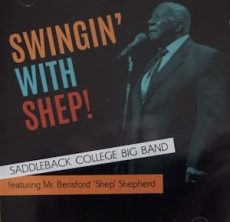
Daily Dose Of Jazz…
Shep Shepherd was born Berisford Shepherd on January 19, 1917 in Honduras while his mother was enroute from the West Indies to Philadelphia, Pennsylvania. Arriving in the city she first settled and raised him in a Jewish neighborhood before moving to a Black neighborhood.
An early fascination with marching bands he drummed on tables and chairs until his mother bought him a toy drum to save wear and tear on the furniture. He attended the Jules E. Mastbaum Area Conservatory and Vocational School where he trained as a percussionist on timpani, vibraphone, xylophone, snare and bass drums. Students were required to have a secondary instrument, and he chose the trombone.
Initially hoping for a career in the Philadelphia Orchestra, he shifted his interest to jazz. He formed a friendship with drummer Jimmy Crawford, who was able to help his career in New York City. During the Thirties performed with Jimmy Gorham’s band in Philadelphia. In 1941, Benny Carter contacted Shep and he moved to New York City, where he also worked with Artie Shaw the same year. He became heavily in demand and the phrase “Get Shep!” became a phrase among area musicians.
Four years in the Army saw him serving in the entertainment corps, and working there he played trombone and improved his skills as a composer and arranger. He met Billy Butlet and in 1952 after his discharge he began working with Butler as part of Bill Doggett’s group. In 1956, Shepherd helped write Doggett’s signature song, Honky Tonk. He left Doggett’s group in 1959 and returned to New York City where he worked in pit orchestras for Broadway shows, and as a music copyist and arranger.
When the nationwide tour of the Broadway show Here’s Love ended, Shepherd found himself in San Francisco, California and he became a freelance musician there. He continued to play drums through the Sixties and Seventies working with Patti Page, Lionel Hampton, Lena Horne, The Ward Singers, Earl Bostic, Buck Clayton, Odetta, Cab Calloway, Sy Oliver, Big Maybelle, and Erskine Hawkins. At 80 years old, he switched his primary focus from drums to trombone, and with organist Art Harris and drummer Robert Labbe formed the group Blues Fuse.
Drummer, trombonist, vocalist and composer Shep Shepherd, who is listed in The Biographical Encyclopedia of Jazz and Who’s Who Among Black Americans, transitioned on November 25, 2018 at the age of 101.
More Posts: bandleader,drums,history,instrumental,jazz,music,trombone,vocal
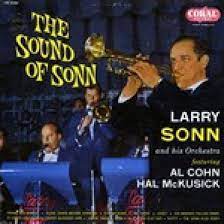
Daily Dose Of Jazz…
Larry Sonn was born in Woodmere on Long Island, New York on January 17, 1919. GraduatING from the Juilliard School of Music in New York City, he began his career with the Southern Symphony Orchestra in Columbia, South Carolina, as first trumpet, but later turned to the popular idioms of jazz and the big band sound.
He soon was playing trumpet and arranging for the top orchestras in the United States which included Glenn Miller, Teddy Powell, Bobby Byrne, Charlie Barnett, Hal McIntyre and Vincent Lopez.
A series of engagements in the early 1940’s took him to Philadelphia, Pennsylvania and San Antonio, Texas. An executive from the new Hotel Reforma in Mexico City heard him play and, impressed by his virtuosity, offered Larry an appearance at the hotel’s Ciro’s Night Club. The short-term contract lasted nine years and falling in love with Mexico, the country reciprocated.
Sonn returned to the States in the late-50’s and put together a new orchestra to play jazz and dance music. He gained national exposure on NBC’s Monitor with Al Jazzbo Collins commentating. When Mexico called again he went back and formed one of the foremost big bands in the country. He toured, did radio shows for XEW, Mexico’s largest station, and recorded for RCA Victor, CBS, Cisne, Peerless, Sonart and other labels.
Retiring from music in 1972 he relocated 40 miles south of Mexico City and opened a popular book store specializing in US editions for English-speaking residents and tourists. After several years he retired completely.
Trumpeter, arranger, composer, and bandleader Larry Sonn transitioned in 2015 at 95 in Cuernavaca, Morelos, Mexico.
More Posts: arranger,bandleader,composer,history,instrumental,jazz,music,trumpet



